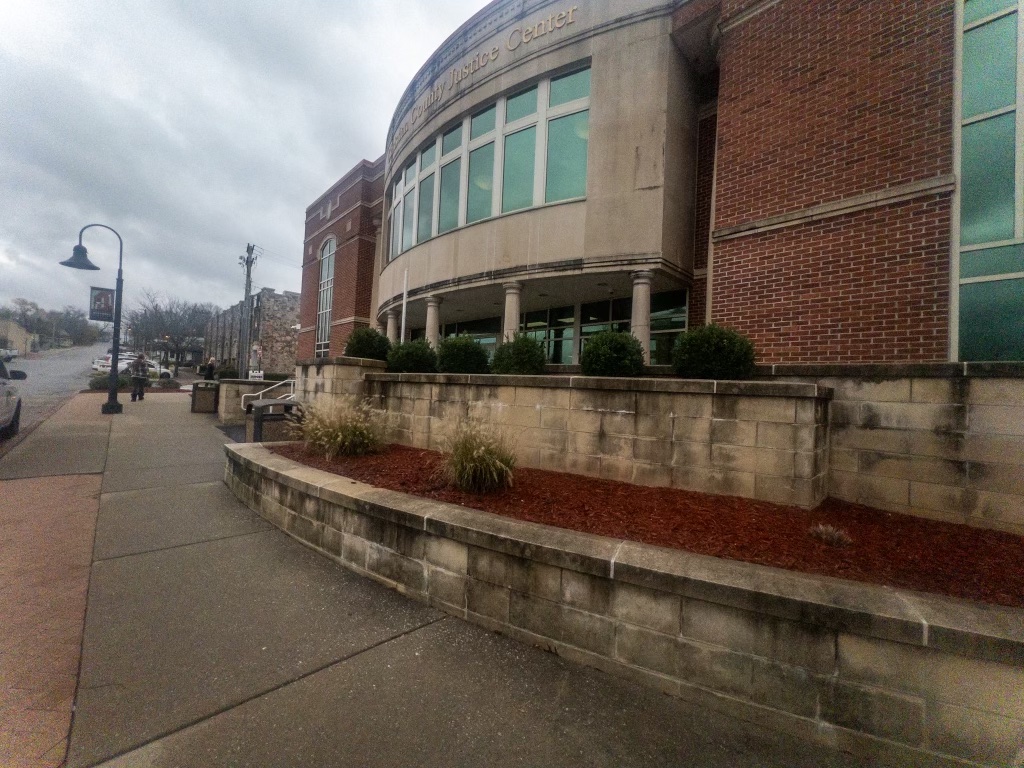Home » News » 2024 » November
News Brief
Nov. 18, 2024Ozark, Mo. |
By: Annelise Hanshaw - Missouri Independent
Judge weighs whether Missouri-based Kanakuk defrauded abuse survivor’s family

By Annelise Hanshaw - Missouri Independent
OZARK — Attorneys argued about culpability in Christian County Circuit Court Monday morning in a lawsuit involving a Branson-area Christian summer camp accused of conspiring with its insurer to trick a family into signing a non-disclosure agreement by concealing prior knowledge of sexual misconduct.
Logan Yandell, a survivor of sexual abuse by Kanakuk Ministries’ former camp director, filed a lawsuit in 2022 alleging misstatements by the camp’s CEO led his parents to sign a settlement and non-disclosure agreement for $250,000 that they otherwise would have continued to fight.
Yandell’s attorney, Reed Martens, told Judge Raymond Gross on Monday that his client’s parents signed a release in December of 2010 under pressure from Kanakuk CEO Joe White, who was their family friend.
During a call in September of 2009, Martens said, the Yandell family asked White if he knew of other abuse allegations involving former Kanakuk camp director Peter Newman. He allegedly said “nothing has been on (the camp’s) radar with (Newman),” but an affidavit by Newman’s former supervisor disclosed that the camp had been aware of misconduct as early as 1999.
The lawsuit also names ACE American Insurance Company as a defendant, arguing it influenced the camp’s decision to conceal information.
Gross asked if there was “correspondence of any kind” between the camp and ACE prior to White’s phone call with the Yandells.
David Mayer, who is also representing Yandell, said the insurance company was aware of abuse allegations “in March or April” prior to the call.
White testified that he did not speak to ACE before the alleged misstatement, said Manuel Mungia, an attorney for ACE, and the company wasn’t even notified of the statement.
“There is no evidence that ACE was aware of a fraudulent statement,” he said.
Yandell’s attorneys provided evidence of the company attempting to influence White months later when the camp drafted a letter to send to 8,000 families outlining what it knew about Newman.
ACE, in response, “strongly recommended not to send the letter” and sent a reservation of rights letter, which could exempt the company from covering related legal matters, Martens said.
So the email remained unreleased. This lawsuit has unearthed the draft and ACE’s response to the camp, Martens said, and it “gives rise to the concealment and conspiracy.”
Another matter Gross will have to consider is whether media reports of Newman’s arrest could nullify the case under the statute of limitations for fraud.
In Missouri, claims must be brought within five years of discovering the fraud, and victims have 10 years for discovery.
Bryan Wade, an attorney for Kanakuk, said there were court cases and news articles published over five years ago that the Yandell family had access to. Access to the information, he argued, is the same as knowledge, according to other cases.
Yandell’s parents didn’t have the responsibility to seek out the other court cases or media reports, Marten said, because of their close personal relationship with White. He said because their friend had “superior knowledge of the facts,” they were exempt from ordinary standards of diligence.
Another survivor of Newman’s abuse, in a deposition, told attorneys that he, White and Yandell discussed Newman’s misconduct years ago, Wade said. Importantly, Yandell is the case’s plaintiff — not his parents.
But Yandell’s parents told attorneys their discovery of the allegations of abuse was in 2021, when a national news article labeled Kanakuk’s situation the “worst Christian sex abuse scandal.”
If Gross accepts that 2021 is the year of discovery, the case is still within the statute of limitations.
He told attorneys his goal is to submit his judgment “by the end of the year,” though he had a large workload.
The case is set for trial in July 2025.
![]()






